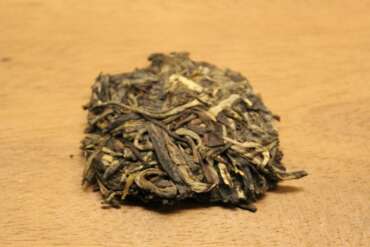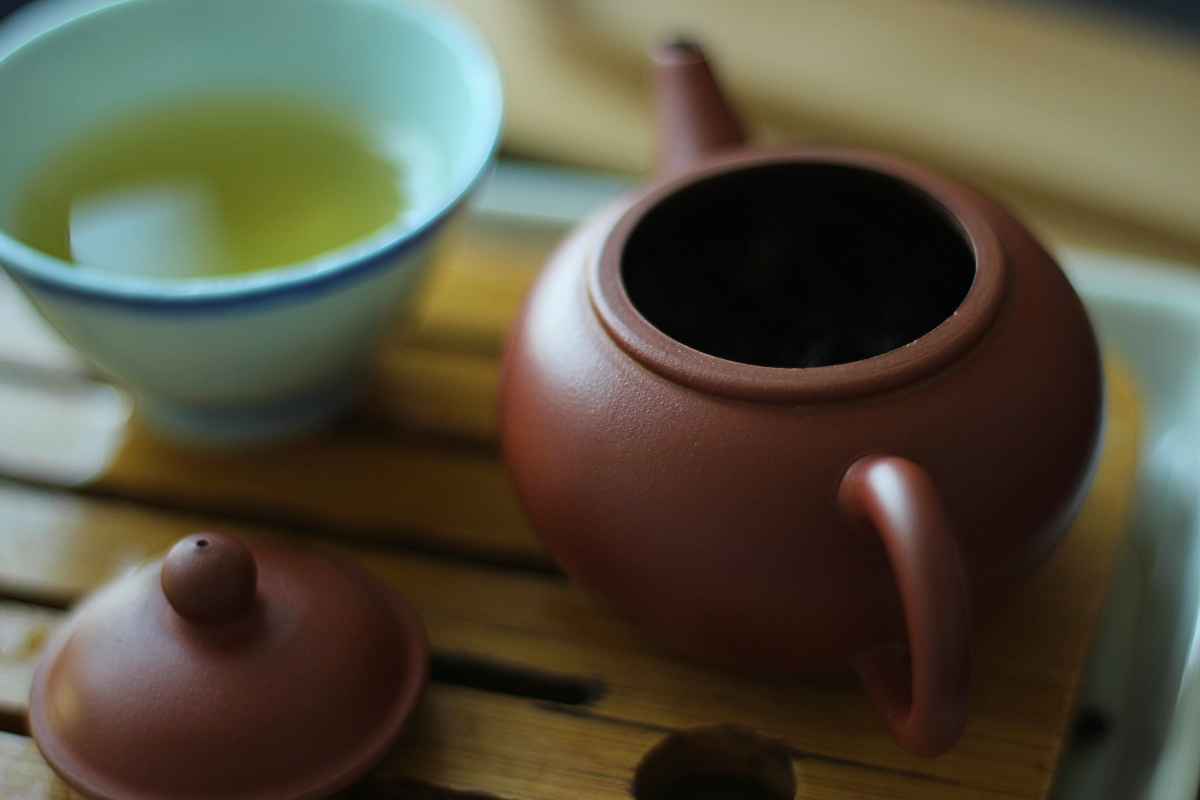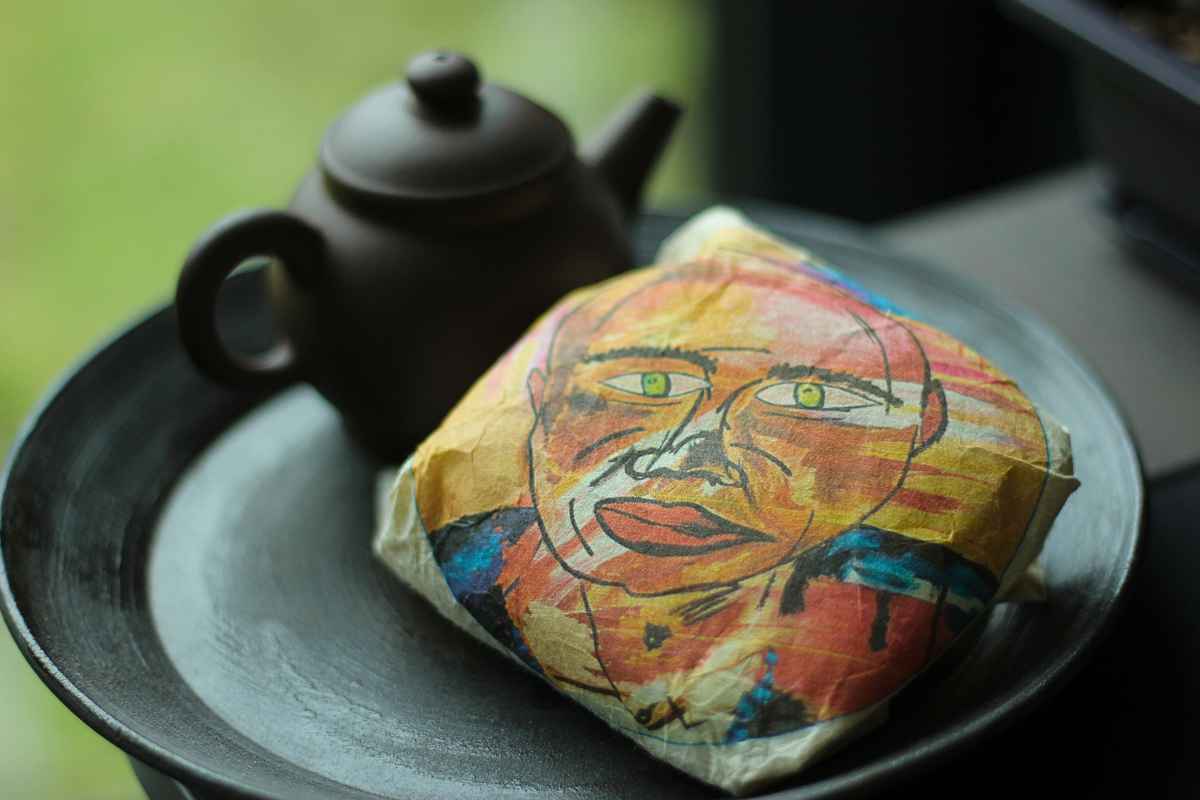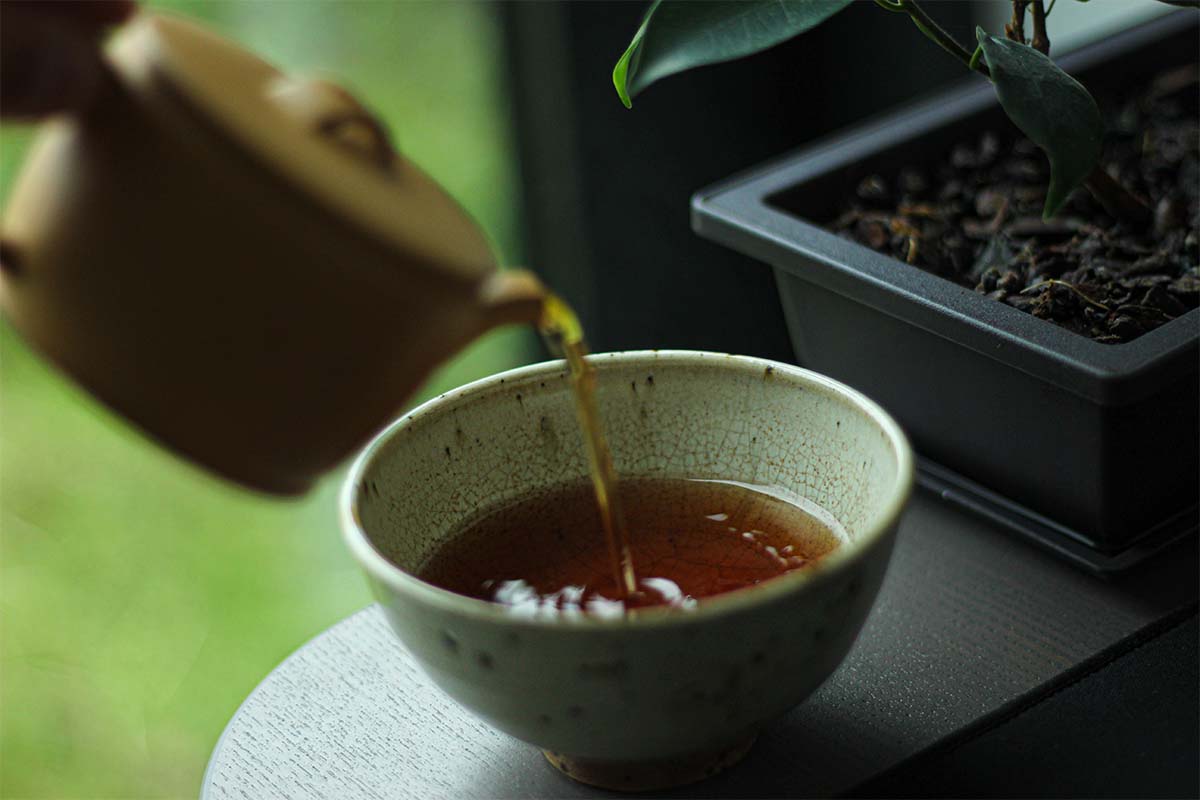The GuShu NaKa ’16 from Pu-erh.sk is a relatively young Sheng Puerh tea from Yunnan Province in China. It is part of the first Spring picking from 2016. This tea is classified as a Gushu Sheng Puerh tea, which means that it is made from very old tea trees. The term ‘Sheng Puerh’ simply refers to the type of tea and is different from another type of Puerh tea: Shou Puerh. Originally, only 32 cakes of this particular tea were compressed and I received a 7g sample with a teapot I have bought recently. The flavour profile of the tea is supposed to be deep, full, intense, multi-layered and with returning sweetness. (source)
Want to read about an unusual dark tea (or Heicha) from Anhui Province? Read my tasting notes about the 2017 Qianliang Little Cubes.
GuShu NaKa 2016
As briefly discussed in the introduction, this tea is a Gushu Sheng Puerh tea. The term ‘Gushu’ (or 古树) means that one is talking about tea that comes ancient trees. Some people might say that a tree has to be at least 100, 200 or even 500 years old to be classified as Gushu but no one really knows. One thing is certain: it has to be a very old tree that has survived the test of time. In addition, it might prove tricky to find out the correct age of a tea tree without damaging the tree.
Originally, Sheng Puerh tea was one of the first kinds of tea to appear in China centuries ago. The leaves of this kind of tea are compressed into cakes so they can mature and slowly oxidise over a very long time. The production process of this tea is similar to green tea but ageing offers more depth than a normal green tea. This is what really makes it special; ageing improves the flavour of the tea and it might be different after 5 years, 10 years, 20 years, …
Do you want to read about other Sheng Puerh teas I have tried? You can read about Mei Leaf’s Nuzzle Diver or about white2tea’s The Thing Still is.
The colours of the dry leaves are mainly brown, gray and faded khaki greens. The leaves are relatively large in size.
The colour of the wet leaves is all kinds of bright greens. They have opened and it seems to be a mix of small and larger leaves.
Tea Tasting
- Water 99°C
- 7g for a 150ml Jianshui teapot
- 2 rinses
- 6 steeps
Smell dry leaves
There is a sweetness in the smell but fresh dry hay is the most dominant aroma.
Smell wet leaves
Still some hay but the smell is a lot deeper. There is also an intense sweetness noticeable. It’s mostly warm honey.
Steeping
Steep 1 (15 sec): a sweetness at the start followed by a light bitterness in the finish. The sweetness is very subtle honey.
Steep 2 (20 sec): the sweetness is gone and it’s a bit more bitter, especially in the aftertaste. Also astringent in my throat. It’s not that intense; it’s a pleasant astringency.
Steep 3 (25 sec): this one is bitter right from the start. This bitterness only lasts for a short while and changes into subtle woodsy notes. Tingling sensation in my throat after swallowing and I also notice a light bitterness again.
Steep 4 (30 sec): the sweetness has not returned for this steep. Light bitterness in the beginning and no real aftertaste or finish. There is a light astringency but definitely not as much as the previous steep.
Steep 5 (35 sec): this steep is quite astringent from the start. Light bitterness and some sweetness as well. As described on the website, the sweetness goes back and forth between the steeps. I’m starting to feel the energy of this tea. I have a warm feeling in my chest!
Steep 6 (40 sec): a more dominant bitterness again. No real sweetness, only bitter notes and a chalky throat after swallowing. The aftertaste is also bitter.
Conclusion
This tea has a taste that is typical for a Sheng Puerh tea. Once you smell and taste it, you’ll know what I mean. In general, I really liked this tea. Not a big fan of bitter but the combination of bitter and sweet made it work for me. You can taste that this is a deep and complex tea. The bitterness was just about right. I only had one sample of this tea but I’m really curious what it will be like in 5 years.
Interested in buying this tea? Visit Pu-erk.sk’s website.




